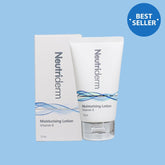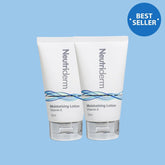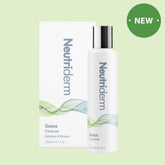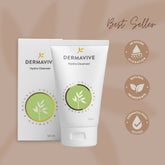Congratulations on your pregnancy! This is a time of incredible change, and while you may be experiencing the famed "pregnancy glow," you might also be dealing with new skin challenges like hormonal acne, melasma, or increased sensitivity. Maintaining a safe and effective skincare regimen means becoming a diligent ingredient detective.
The main difference between your pre-pregnancy and pregnancy skincare routines lies in eliminating ingredients that have a high rate of systemic absorption or known risks, and confidently embracing powerful, safe alternatives.
Here is an elaboration on the crucial ingredients you need to know about—which ones to avoid and which ones to welcome into your routine—to keep your skin healthy and your baby safe.
The Must-AVOID Ingredients: Why They Are Off-Limits
The primary reason to avoid certain ingredients is the potential for them to be absorbed through the skin, enter your bloodstream, and cross the placental barrier to reach the developing fetus. The risks associated with these ingredients, though sometimes theoretical or based on high-dose oral consumption, are generally deemed too great to justify topical use during pregnancy.
1. Retinoids (Vitamin A Derivatives)
This category includes some of the most powerful anti-aging and anti-acne ingredients, and they are the number one component to avoid.
-
Names to look for: Retinol, Retinaldehyde, Tretinoin (Retin-A), Adapalene, Tazarotene, and Retinyl Palmitate.
-
The Risk: Oral retinoids (like isotretinoin) are confirmed teratogens, causing severe birth defects. While topical absorption is much lower, doctors mandate a strict precautionary principle, advising patients to stop all topical forms immediately upon planning pregnancy or conception. The benefits of cosmetic use do not outweigh the potential risk.
2. High-Dose Salicylic Acid (BHA)
Salicylic Acid is a beta-hydroxy acid known for its ability to penetrate pores and treat acne.
-
The Concern: Salicylic Acid is chemically related to aspirin (acetylsalicylic acid). While gentle, wash-off cleansers containing a low concentration (typically $2\%$ or less) are generally considered safe due to minimal contact time, treatments like high-concentration peels, toners, and serums are generally advised against. You should specifically avoid prolonged exposure to high-dose BHA products.
3. Hydroquinone
Hydroquinone is a prescription-strength skin lightener used primarily for severe hyperpigmentation like melasma.
-
The Risk: Hydroquinone has a very high systemic absorption rate, sometimes up to $45\%$. Due to this significant absorption, it is strongly advised to discontinue its use entirely during pregnancy and while breastfeeding.
4. Certain Chemical Sunscreens
Sunscreen is non-negotiable for preventing and managing melasma. The issue lies with the type of filter used.
-
The Concern: Chemical filters like Oxybenzone are sometimes flagged as potential endocrine disruptors. While this is an area of ongoing research, a consensus exists to switch to physical blockers as a precautionary measure.

Pregnancy-Safe Heroes: The Effective Substitutes
Thankfully, science has provided us with numerous ingredients that are both safe and highly effective at managing the common skin issues that arise during pregnancy, such as hormonal acne, dullness, and pigmentation.
1. Alpha Hydroxy Acids (AHAs)
AHAs are your safe substitutes for retinoids for surface exfoliation.
-
How they work: AHAs are water-soluble molecules that gently exfoliate the very top layer of dead skin cells, improving texture and brightness. Because they work on the skin’s surface, their absorption is minimal, making them safe for use in pregnancy for managing dullness and mild acne.
2. Vitamin C (Ascorbic Acid)
This antioxidant powerhouse is a safe and beneficial addition to any pregnancy routine.
-
How it works: Vitamin C helps fight free radical damage caused by environmental stressors and UV exposure, which can trigger pigmentation. It is also an excellent brightener, helping to give you that coveted healthy glow.
3. Niacinamide (Vitamin B3)
A true workhorse that is safe, effective, and well-tolerated by most skin types.
-
How it works: Niacinamide reduces inflammation, minimizes the appearance of pores, helps regulate oil production, and strengthens the skin's barrier function. It is highly recommended for calming pregnancy-related sensitivity and breakouts.
Analyzing Your Products: Dermavive and Neutriderm
Based on common formulations, both of the products you mentioned fit beautifully into a pregnancy-safe routine:
Dermavive Hydra Cleanser
This cleanser is typically built around Colloidal Oatmeal, a natural ingredient that is extremely gentle, soothing, and protective for sensitive and irritated skin. It is soap-free and pH-balanced. The cleanser is safe for daily use and is ideal for calming the increased skin sensitivity and dryness often experienced during pregnancy.
Neutriderm Moisturizing Lotion
This lotion is often highlighted for its unique form of Vitamin E (Tocopherol Phosphate), a powerful, safe antioxidant. A consistent, high-quality moisturizer is essential for maintaining skin barrier integrity, which is vital during pregnancy. Products that focus on hydration and barrier support are considered safe staples throughout all trimesters.
By understanding these key ingredient categories, you can confidently navigate the world of skincare and build a routine that supports your skin's health safely throughout your pregnancy.
Final Recommendation
The ultimate goal of pregnancy skincare is simplicity, effectiveness, and, above all, safety. By embracing mineral UV filters and these therapeutic safe substitutes, you can maintain a beautiful and healthy complexion throughout your term. However, this ingredient guide should serve as a strong starting point, not the final word. Always, without exception, consult with your Obstetrician or Dermatologist regarding your full product list to ensure personalized medical approval for every step of your skincare journey. Be smart, be safe, and enjoy your glow!







